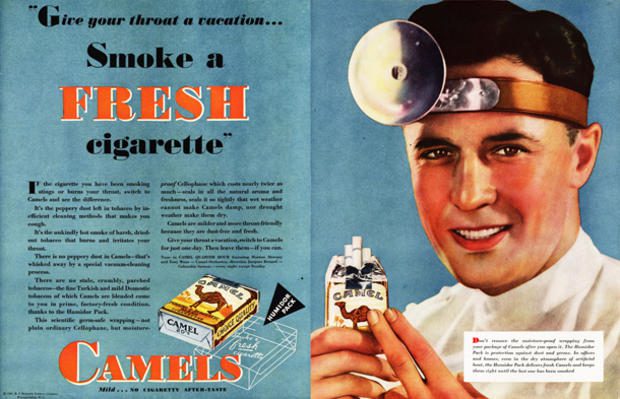A lot of unscrupulous companies have created some whopper lies to sell their products.
Perhaps the biggest lie perpetrated over the course of decades was by the tobacco industry that claimed cigarettes are good for your health and that doctors approved of, and recommended, smoking.
We all know that’s not true! And eventually tobacco companies had to stop advertising.
In order to protect consumers, politicians passed two Truth in Advertising laws.
1. The FTC Act originated in 1914 with the creation of the Federal Trade Commission. It makes it illegal for advertisers to make claims about products or services being sold if those claims can’t be proven through accurate methods of tracking and evaluation, to protect consumers and promote competition.
2. The Dodd-Frank Wall Street Reform and Consumer Protection Act passed in 2010 protects consumers from exploitation by financial companies, banks, mortgage lenders, pay-day lenders, and investment firms.
However, what most of us don’t know about the Dodd-Frank law is that it allows your bank to take your money. Anything you have there in checking, savings, CD’s, IRAs or 401(k) accounts can be taken by your bank if that bank deems it necessary to have those monies to keep itself afloat.
Dodd-Frank says “any money you have stored in a bank makes you an unsecured creditor, so your money can be confiscated by them to cover their losses”, and you have little, to no, legal recourse. If there is another financial crisis like the stock market crash of 1929, there won’t be a run on banks because thanks to Dodd-Frank, the bank can keep your money and won’t be obligated to let you cash out the funds you deposited.
So much for protecting consumers!
Politicians are so sneaky and unscrupulous. Passing bills to “help and protect” consumers that actually do the opposite. The new “Inflation Reduction Act” is one such bill. Even CNN and The New York Times reported that in actuality, it will do nothing to reduce inflation. What happened to “truth in advertising” for that?
In an article about the signing of it, the NY Times referred to it as the “Climate, Health and Tax Bill”, which is actually what it is. Just not what it’s called.
Politicians protect consumers from everything except politicians! They pass laws for the rest of the country, but exempt themselves.
Even their campaign ads are exempt from the truth in advertising laws. They can lie and mis-represent facts in their campaign ads as much as they want. And they do!
Television is still the most powerful medium for political ads. It has a huge impact on who we elect to run our government. Eisenhower was the first to use it in a big way with his simple, yet reassuring, “I Like Ike” campaign. A good, clean, positive campaign.
In 1964 President Johnson ran the first nasty, untruthful campaign against Barry Goldwater, claiming that if elected president Goldwater would start the third world war. With the Viet Nam war in the headline news each night and the recent Bay of Pigs standoff with the Russians, the message resonated.
The real game changer for TV was in 1960, when the first televised presidential debate was held between candidates Richard Nixon and John F. Kennedy. Kennedy was made for TV. He was a natural. Nixon, not so much. Experts still say that debate was the turning point in Kennedy’s favor, who went on to win the presidency by a very thin margin.
During the next eight years Nixon learned how to use TV. In 1968 he used it so masterfully journalist Joe McGinnis wrote a book about it called The Selling of the President. It was a best-seller!
Nixon played on our fears, worries, and anger. The war in Viet Nam, violent demonstrations, riots in cities, and three political assassinations were kept top of mind through TV during the 1960s. In his re-election in 1972 he claimed to be the law and order candidate. Then there was the Watergate scandal and cover up.
Politicians of the 21st Century have learned from Nixon’s playbook and are masters at creating fear, anxiety, distrust, anger, and feelings of revenge, hatred, and intolerance in their ads. This season’s political ads are nearly all attack ads designed to destroy reputations and build distrust.
There are few candidates whose ads proclaim their accomplishments and give reasons to vote FOR them instead of just trashing their opponents.
When will we voters start to hold politicians to a much higher level of expectation and stop rewarding their bad behavior? This is a country where elected officials are public servants, not the ruling class. It’s time to remind them of that.
Next week we vote. Let’s vote for people who actually will put America before their own greed, lust for power, and out-sized egos. Let’s vote for people who will work together for the good of all.
Let’s not believe the TV commercials and take the time to find out for ourselves what each politician actually stands for and what his or her voting records, past rhetoric, and behavior says about them, before we vote for them.
We have the power to get good people back into government. Let’s do it.
“Life doesn’t imitate art. It imitates bad television.”
Woody Allen
If you enjoyed this blog and know someone else who would enjoy it, please share it.

